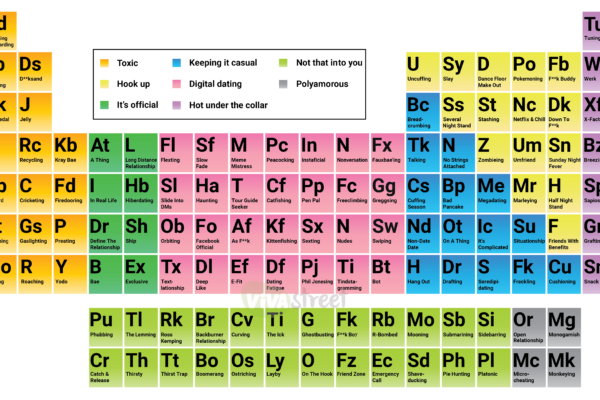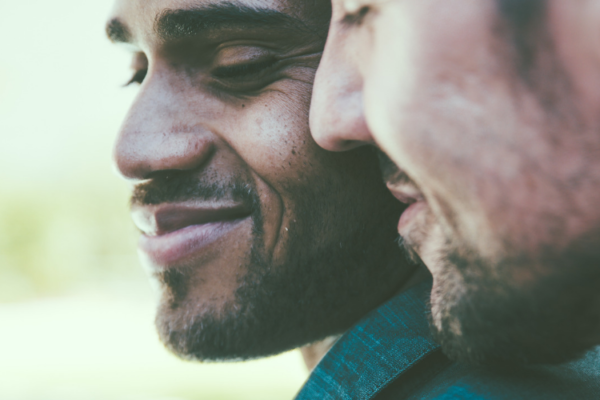With the topic of sexual orientation ever present in the media, the term pansexual is one many of us will likely have heard at some point.
Yet, though pansexuality is receiving more coverage, there are still many people (including those in the LGBTQ+ community) confused by the term, not quite understanding what it really means to identify as pansexual.
- What does being pansexual mean?
- The history behind pansexuality
- Celebrities who identify as pansexual
- Dispelling the myths about pansexuality
- Is pansexuality the same as bisexuality?
- Further support and advice
Here, Vivastreet offers an explanation of the term pansexual while providing a little insight into its history. We also aim to dispel those most common myths that shroud pansexuality.
What does being pansexual mean?
Quite simply, being pansexual is defined as being sexually, romantically, or emotionally attracted to someone regardless of that person’s sex, gender, or how they identify.
Traditional ‘man’ and ‘woman’ genders no longer cover all of the gender identities that now exist, thus there are a wide scope of identities and gender options that people now identify with.
This recognition of gender fluidity can be seen through various companies and their gender options. Facebook offers at least 50 options for users to select.
A person who identifies as ‘pansexual’ does not pay attention to gender binary.
This means they can be attracted to anyone that is cisgender, bigender, agender, gender-fluid, gender-neutral, transgender, intersex, and androgynous.
For this reason, many pansexual people refer to themselves as gender-blind.
You may also hear pansexuality referred to as omnisexuality. Regardless of how each person likes to refer to this way of life, pansexuality ultimately means placing no restrictions (gender, sexuality) on who you’re attracted to.
A report by Wunderman Thompson, found gender and sexual identity was the most progressive with Gen Z. According to the findings, 82% of young people were less likely to care about gender and sexuality.
Likewise, in a YouGov study, British adults were asked to place themselves on the Kinsey scale, where 1 in 12 young people said they were not 100% heterosexual.
The history behind pansexuality
What often surprises people is how the term pansexual is, in fact, not a new one. It can be traced back to the Greeks, whereby the prefix of ‘pan’ translates as ‘all.’
From here on, experts suggest the term pansexual was mentioned as early as 1917, with Sigmund Freud himself taking the credit for this.
Furthermore, during the 1970s, the first few signs of those claiming to identify as pansexual began to emerge. During this time the term was similar to the way pansexuality is referred to today. It’s only in recent years that pansexuality has caught the attention of the mainstream media.
In 2015 the term began to trend on many a search engine, when singer Miley Cyrus in an exclusive interview, publicly came out as ‘pansexual’.
Celebrities who identify as pansexual
Perhaps the most prolific of celebrities openly identifying as pansexual has been Janelle Monáe. The American singer has been the most vocal of supporters of pansexuality, offering some much-needed publicity to the term in the process.
Yet, alongside Janelle’s candid confessions through, many other well-known personalities have stepped forward laying claims to identifying this way too. These include:
- Miley Cyrus – US popstar
- Brendon Urie – Lead vocalist of Panic! at the Disco
- Tess Holliday – American model
- Joe Lycett – Comedian
- Angel Haze – American rapper
- Laci Green – American YouTuber
- Kate Dillion – Orange Is the New Black star
- Kristen Stewart – Hollywood film star
- Bella Thorne – American actress
- Layla Moran – MP for Liberal Democrats
- Héloïse Letissier – of Christine and the Queens fame
Dispelling the myths about pansexuality
As with all other types of sexual orientations, pansexuality, too, brings with it many myths.
Myth: Pansexual people are sexually attracted to everyone they meet…
Because pansexuality is accepting of every identity, many assume pansexual people will fall for every single person they meet. However, being pansexual does not mean being attracted to every single person you come across in a day.
Myth: Pansexual people are extremely more sexually active…
Because being pansexual refers to an attraction of a wide range of other identities, it’s also incorrectly classed as the more promiscuous of orientations. Yet in no way are pansexual people overly sexually active. For some, it’s all about the mere attraction, whether it be emotionally or romantically, and for others it’s about the sexual attraction. In fact, many people who are in committed long-term relationships now find they can openly admit to identifying as pansexual, without the need to act any further on it.
Myth: Those referring to themselves as pansexual are just confused about their sexuality…
A comment often made to anyone declaring their sexual orientation, pansexual people too experience negative comments on their way of living. For many identifying as pansexual, however, this term finally identifies them and the feelings they’ve harboured for many years. The problem here often lies with those who don’t quite understand pansexuality, as opposed to those who are clear enough and confident enough to label themselves.
Myth: Pansexual people are attracted to pans…
Several people coming out as pansexual will encounter this long-running joke. They may also find themselves having to explain that pansexuality isn’t about having relations with frying pans. We know… However, for many, this is one joke that has long passed its sell-by-date.
Is pansexuality the same as bisexuality?
Though often referred to alongside bisexuality, being pansexual is not the same as being bisexual.
Yet, this doesn’t stop people labelling them together and placing them in the same category – and this includes those members of the LGBT+ community.
So how do they differ?
As explained above, pansexuality is the definition used to describe a person who is attracted to all gender identities. Gender plays no role in a person’s sexuality. There are sexual or romantic feelings despite gender.
The definition of bisexuality can differ depending on the person. However, in essence, bisexuality is used to describe someone who is attracted to the same gender, and different genders, including those who identify as non-binary. People who identify as bisexual are attracted to two or more genders.
Further support and advice
Though it’s not yet possible to gather much data on the exact number of people identifying as pansexual, the numbers of people proudly identifying as pansexual are certainly growing.
This is in part due to celebrities and other well-known people coming forward with their experiences, alongside more publicity generated in the media on the discussion of pansexuality.
For those looking to access organisations that deal exclusively with pansexuality, unfortunately, there aren’t yet many offering specific pansexual guidance and support only. But, hopefully, with the rise in the number of pansexual people, this will soon change.
Currently, there are several helpful LGBT+ organisations where pansexuality is further recognised. These include:
Finally, there is a dedicated Pansexual Visibility Day organised annually on May 24th. Held to not only recognise those identifying as pansexual but ultimately celebrate it, this is perhaps one of the most important dates for the pansexual community, and one certainly worth marking on the calendar.





